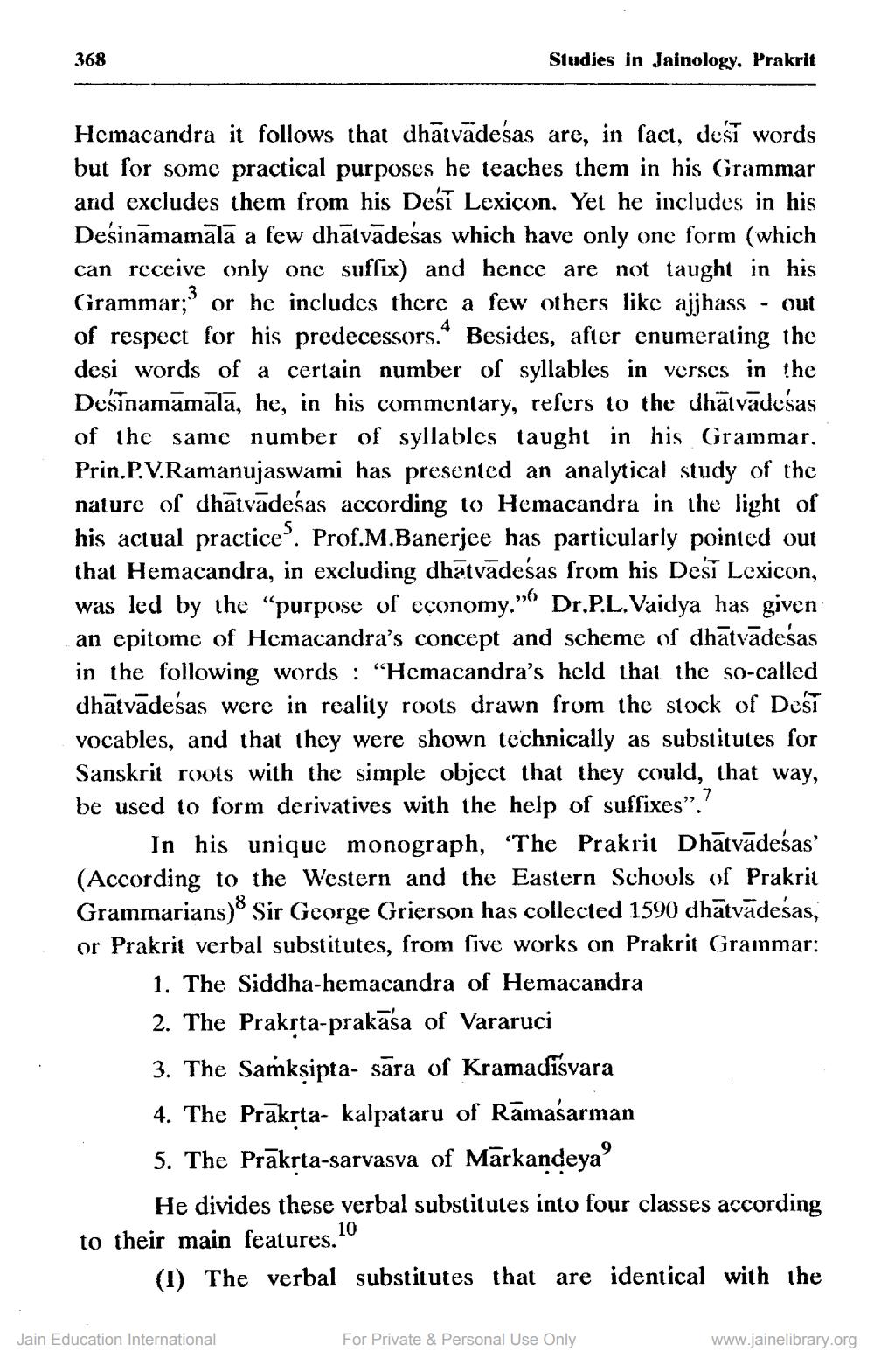________________
368
Studies in Jainology, Prakrit
Hcmacandra it follows that dhātvadesas are, in fact, desi words but for some practical purposes he teaches them in his Grammar and excludes them from his Desī Lexicon. Yet he includes in his Desināmamālā a few dhātvādesas which have only one form (which can receive only one suffix) and hence are not taught in his Grammar;' or he includes there a few others like ajjhass - out of respect for his predecessors. Besides, after enumerating the desi words of a certain number of syllables in verses in the Desinamāmalā, he, in his commentary, refers to the Jhätvādesas of the same number of syllables taught in his Grammar. Prin.P.V.Ramanujaswami has presented an analytical study of the nature of dhatvadesas according to Hemacandra in the light of his actual practice. Prof.M.Banerjee has particularly pointed out that Hemacandra, in excluding dhatvādesas from his Desi Lexicon, was led by the “purpose of cconomy." Dr.P.L. Vaidya has given an epitome of Hemacandra's concept and scheme of dhatvadesas in the following words : “Hemacandra's held that the so-called dhatvadesas were in reality roots drawn from the stock of Desī vocables, and that they were shown technically as substitutes for Sanskrit roots with the simple object that they could, that way, be used to form derivatives with the help of suffixes”.!
In his unique monograph, "The Prakrit Dhātvādesas' (According to the Western and the Eastern Schools of Prakrit Grammarians) Sir George Grierson has collected 1590 dhātvädesas, or Prakrit verbal substitutes, from sive works on Prakrit Grammar:
1. The Siddha-hemacandra of Hemacandra 2. The Prakrta-prakasa of Vararuci 3. The Saṁksipta- sāra of Kramadīsvara 4. The Prakrta- kalpataru of Ramašarman 5. The Prakrta-sarvasva of Mārkandeya'
He divides these verbal substitutes into four classes according to their main features. 10
(I) The verbal substitutes that are identical with the
Jain Education International
For Private & Personal Use Only
www.jainelibrary.org




